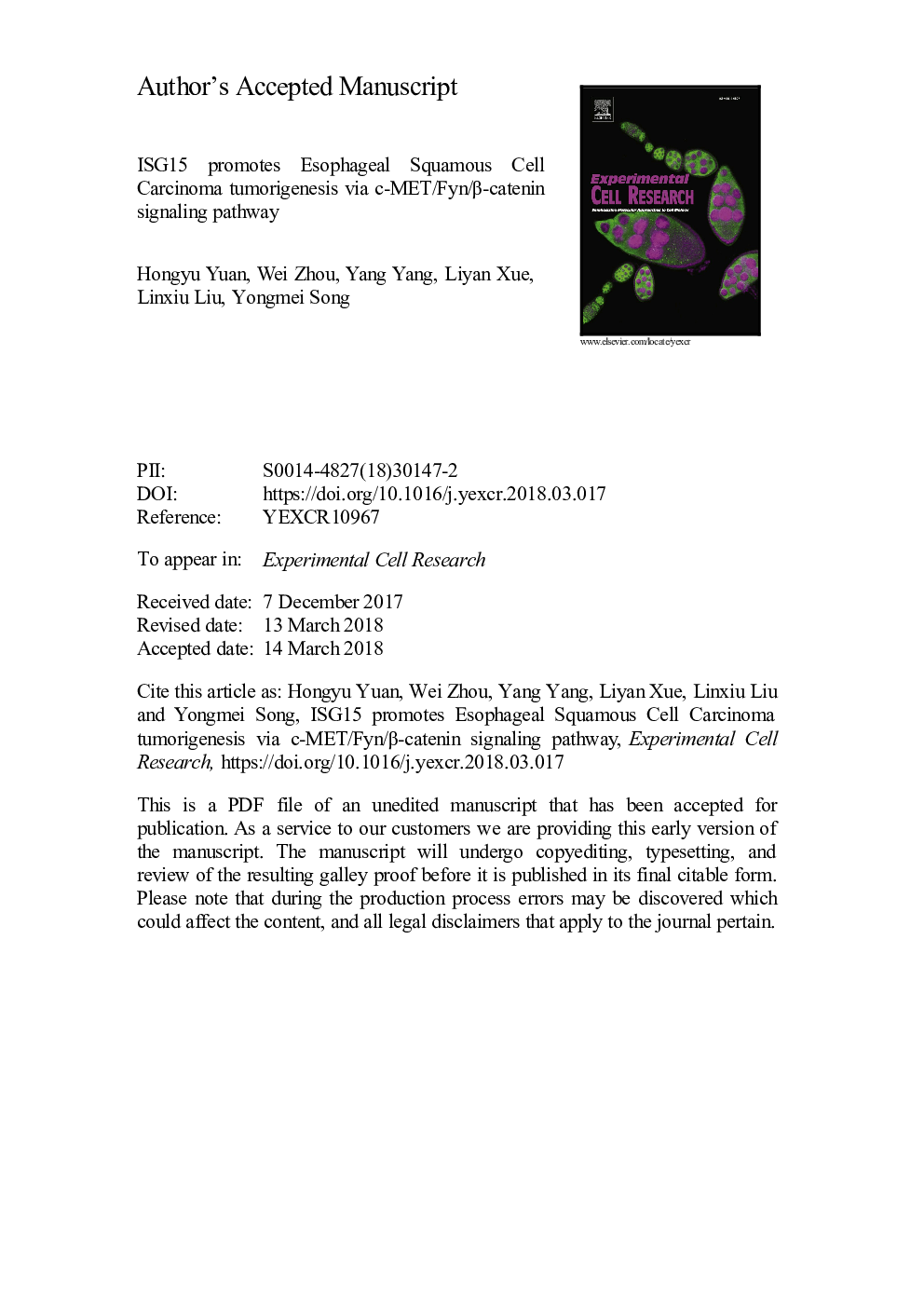| Article ID | Journal | Published Year | Pages | File Type |
|---|---|---|---|---|
| 8450746 | Experimental Cell Research | 2018 | 28 Pages |
Abstract
Esophageal squamous cell carcinoma (ESCC) is one of the most malignant tumors in China with a poor prognosis. Most ESCC patients were diagnosed at advanced stages, losing the opportunity for surgical excision. Hence, it remains a pressing work to identify biomarkers for early detection, prognosis prediction and targeting therapies in ESCC. Interferon-stimulated gene 15 (ISG15) encodes a 15-kDa protein, and is involved in the post-translational modification (PTMs) of multiple proteins. However, the molecular functions of ISG15 in ESCC remain unclear. In this work, we found that ISG15 was aberrantly expressed in ESCC tissues and cell lines. Enhanced protein level of ISG15 promoted cellular malignant phenotypes including proliferation, migration, invasion and tumor formation in vivo. Consistently, reduction of ISG15 attenuated the cellular malignant phenotype in ESCC cell lines. Furthermore, gene-expression profiles suggested that the differentially expressed ISG15 affected the expression of a panel of genes enriched in the cell adherens junction, such as c-MET. Notably, as a secreted protein, the concentration of ISG15 was elevated in ESCC plasma than healthy individuals, acting as a potential diagnostic marker. Taken together, our results suggested a tumor promotion role of ISG15 in ESCC via c-MET/Fyn/β-catenin pathway.
Related Topics
Life Sciences
Biochemistry, Genetics and Molecular Biology
Cancer Research
Authors
Hongyu Yuan, Wei Zhou, Yang Yang, Liyan Xue, Linxiu Liu, Yongmei Song,
